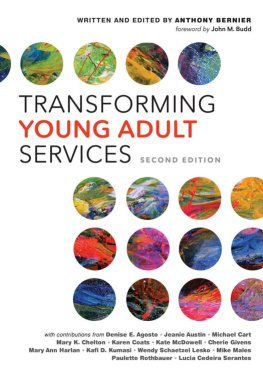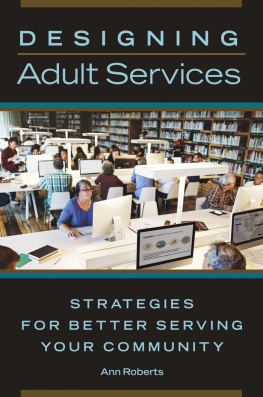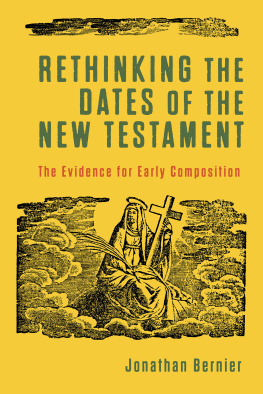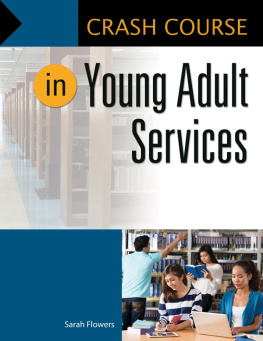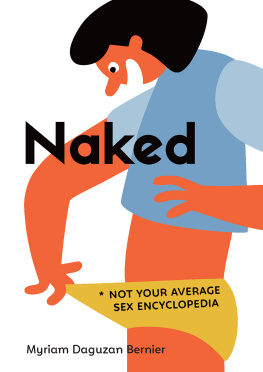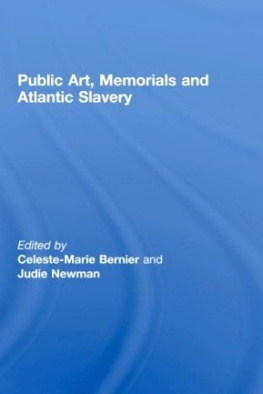Anthony Bernier - Transforming Young Adult Services
Here you can read online Anthony Bernier - Transforming Young Adult Services full text of the book (entire story) in english for free. Download pdf and epub, get meaning, cover and reviews about this ebook. year: 2020, publisher: American Library Association, genre: Politics. Description of the work, (preface) as well as reviews are available. Best literature library LitArk.com created for fans of good reading and offers a wide selection of genres:
Romance novel
Science fiction
Adventure
Detective
Science
History
Home and family
Prose
Art
Politics
Computer
Non-fiction
Religion
Business
Children
Humor
Choose a favorite category and find really read worthwhile books. Enjoy immersion in the world of imagination, feel the emotions of the characters or learn something new for yourself, make an fascinating discovery.
- Book:Transforming Young Adult Services
- Author:
- Publisher:American Library Association
- Genre:
- Year:2020
- Rating:5 / 5
- Favourites:Add to favourites
- Your mark:
- 100
- 1
- 2
- 3
- 4
- 5
Transforming Young Adult Services: summary, description and annotation
We offer to read an annotation, description, summary or preface (depends on what the author of the book "Transforming Young Adult Services" wrote himself). If you haven't found the necessary information about the book — write in the comments, we will try to find it.
Transforming Young Adult Services — read online for free the complete book (whole text) full work
Below is the text of the book, divided by pages. System saving the place of the last page read, allows you to conveniently read the book "Transforming Young Adult Services" online for free, without having to search again every time where you left off. Put a bookmark, and you can go to the page where you finished reading at any time.
Font size:
Interval:
Bookmark:
ALA Neal-Schuman purchases fund advocacy, awareness, and accreditation programs for library professionals worldwide.

2020 by the American Library Association
Extensive effort has gone into ensuring the reliability of the information in this book; however, the publisher makes no warranty, express or implied, with respect to the material contained herein.
ISBNs
978-0-8389-1774-9 (paper)
978-0-8389-1935-4 (PDF)
978-0-8389-1933-0 (ePub)
978-0-8389-1934-7 (Kindle)
Library of Congress Cataloging-in-Publication Data
Names: Bernier, Anthony, editor, author. | Budd, John, 1953 author of foreword.
Title: Transforming young adult services / edited by Anthony Bernier; foreword by John M. Budd.
Description: Second edition. | Chicago : ALA-Neal Schuman, 2020. | Includes bibliographical references and index. | Summary: This revised and expanded second edition updates a provocative collection of 14 expert contributions to the debate inaugurated in 2013 addressing LISs historic avoidance in defining and envisioning its young adult users by offering readers a diverse set of possible responses to how LIS should define YAs for its own professional, institutional, and research purposesProvided by publisher.
Identifiers: LCCN 2019024013 (print) | LCCN 2019024014 (ebook) | ISBN 9780838917749 (paper; alk. paper) | ISBN 9780838919330 (epub) | ISBN 9780838919347 (kindle edition) | ISBN 9780838919354 (pdf)
Subjects: LCSH: Young adults libraries. | Young adults librariesUnited States. | Libraries and teenagers. | Libraries and teenagersUnited States.
Classification: LCC Z718.5 .T73 2020 (print) | LCC Z718.5 (ebook) | DDC 027.62/6dc23
LC record available at https://lccn.loc.gov/2019024013
LC ebook record available at https://lccn.loc.gov/2019024014
Cover image Laurin Rinder.
by Denise E. Agosto
by Karen Coats
by Mary Ann Harlan
by Lucia Cedeira Serantes
by Cherie Givens
by Jeanie Austin
by Michael Cart
by Kate McDowell
by Kafi D. Kumasi
by Wendy Schaetzel Lesko
by Mary K. Chelton
by Mike Males
by Paulette Rothbauer
by Anthony Bernier
I t is tempting to begin prefatory remarks by asking, What is a discipline? This of course is not a new question, although potential answers may have become even more elusive in recent years. As Anthony Bernier observes in his introduction, the core audience for services, the focal points of the service dynamics, and the institutional context of study present questions that the essays in this volume attempt to address. If readers will allow me a digression, I would like to situate some initial thoughts within the locus of disciplinary inquiry. I ask for forbearance because any discussion of transdisciplinary inquiry (note that I do not use the more familiar, though nearly bereft of meaning, term interdisciplinary) depends on a definition of discipline. Also, the relevance of the inquiry presented here is founded on efforts to render the thought and research into young adult services as accessible as possible. That also relies on definitional beginnings. With some trepidation I invoke the name of Thomas Kuhn (1970), who in The Structure of Scientific Revolutions argued that a discipline (or subdiscipline) is built around a paradigm, or the entire constellation of beliefs, values, techniques, and so on shared by members of a given community, and the concrete puzzle-solutions which, employed as models or examples, can replace explicit rules as a basis for the solution of scientific questions (175). What happens when the constellation expands, when the boundaries of past inquiry no longer obtain?
Many formerly well-defined disciplines, even in the natural sciences, broke through those boundaries some time ago. In then rather nascent areas such as psychology, individuals like William James helped to create the kinds of questions that could be addressed. Psychology has changed markedly since Jamess day, but his groundbreaking thought should not be forgotten (and may find resonance in young adult services). At this point it may be useful to return to Kuhn (1970, 180): A paradigm governs... not a subject matter but a group of practitioners. Up until this point one may think that I am denying the avowed purpose of this reader. The foregrounding must be clarified now. The transdisciplinary purpose of library and information science (LIS) is, specifically, to achieve the goals set out for and in this volume; that is, LIS cannot be constrained by the limitations of the pastlimitations that too narrowly bound the scope of research and the envisioning of institution.
Bernier urges inquiry that emerges from LIS as a discipline. Fair enough. We return to the question of definition, this time with specificity, and ask, What is LIS? At the risk of being presumptuous, allow me to suggest some elements of a disciplinary framework within which young adult services can be examined and formulated. One element that many people dispute at the current time is the institutional locus of the services. Rather than irrelevant or peripheral, the institutional is essential. The institution itself is misunderstood and all too facilely dismissed by some who would deny that humans gravitate to places that embody meaning for them. Libraries are such a place; most importantly, they are places of human engagement anddare I say itconstruction. One need not be a social constructionist to accept that institutions are particularly human constructions, designed and created for purposes of interaction, exploration, and discovery. In other words, the library is a counterpoint to any naive solipsism that omits the interdependence that characterizes the human condition (if I can be permitted a bit of lofty language). There is no denying that library as place is a rather recent notion, but it does in some ways represent a return to ideas of the library as a learning environment. An excellent treatment of the library as place is the collection of essays edited by Buschman and Leckie (2007). Some of the essayists who contributed to that volume are also represented in this reader. The concept of the institution pervades all of the sections of the present volume and should be taken as something of a first principle for inquiry and practice in LIS. In fact, the institution is a locus for critical inquiry and practice.
Another and actually related idea is community. Institutions should not exist merely for self-perpetuation; their being has a foundation of connections among people. Institutions of specific types have specific kinds of connections as components of their essential natures. Communities look to institutions in some important ways as extensions of what they seek to be and do. Here a complex dynamic has to be introduced: Communities have multiple identities that should be recognized by the people who operate within institutions. Communities include embodied linguistic, cultural, and other groups that share one or many characteristics. To some extent the sharing is situational and can be recognized by physical and cultural environment. In other ways there are choices made by people, or what Michael Walzer (1983) calls association. There is a serious challenge to institutions and those who work in them here; the positions many people make are based on skepticism and suspicion when it comes to official institutions, regardless of stated missions or services of the institutions. LIS as a discipline must have as a facet the understanding of the tensions that can exist between communities and institutions, and the research and praxis in the field must address the challenge directly. Services, including young adult services, are not abstractions; they are pragmatic, even as they should have sound frameworks.
Next pageFont size:
Interval:
Bookmark:
Similar books «Transforming Young Adult Services»
Look at similar books to Transforming Young Adult Services. We have selected literature similar in name and meaning in the hope of providing readers with more options to find new, interesting, not yet read works.
Discussion, reviews of the book Transforming Young Adult Services and just readers' own opinions. Leave your comments, write what you think about the work, its meaning or the main characters. Specify what exactly you liked and what you didn't like, and why you think so.

